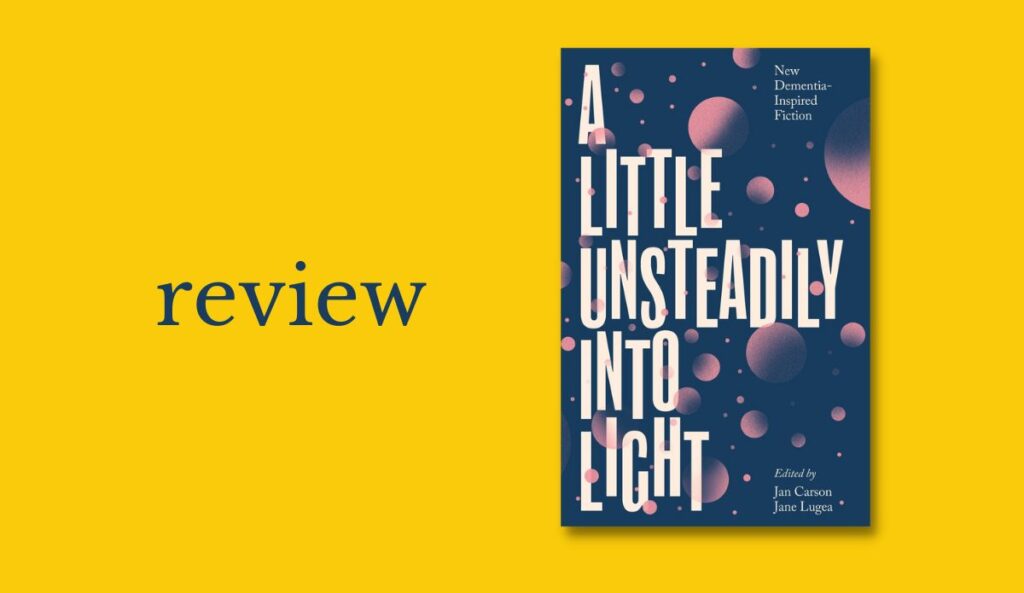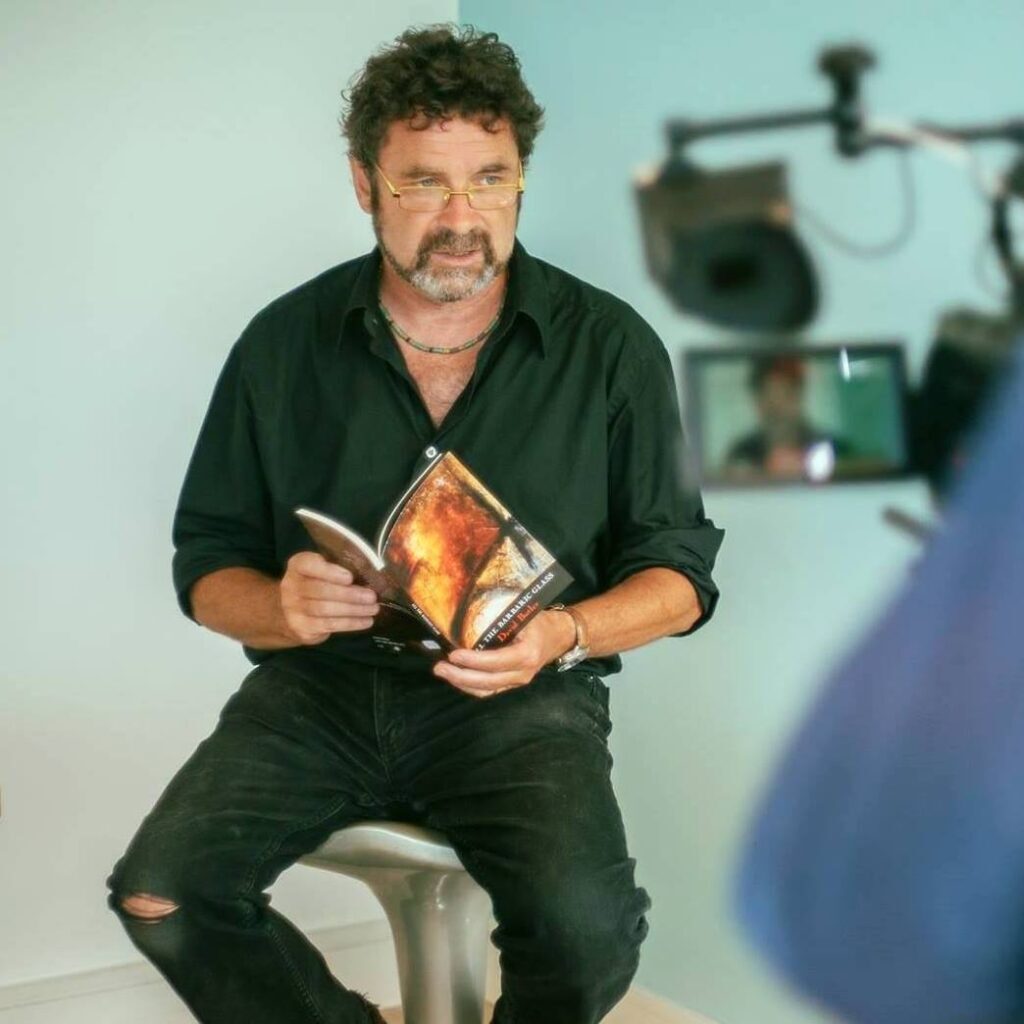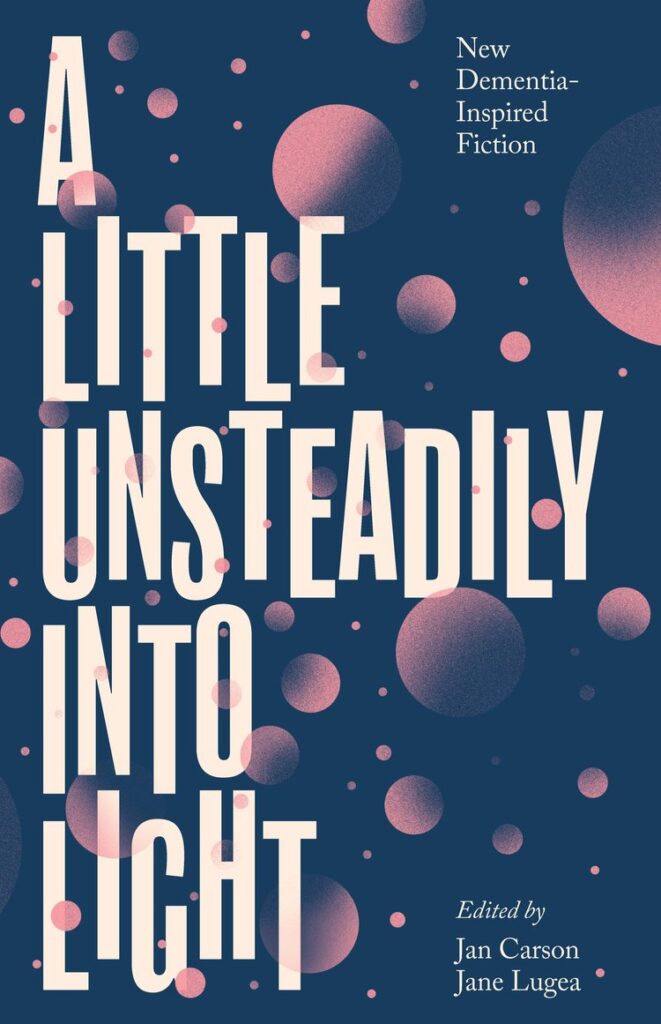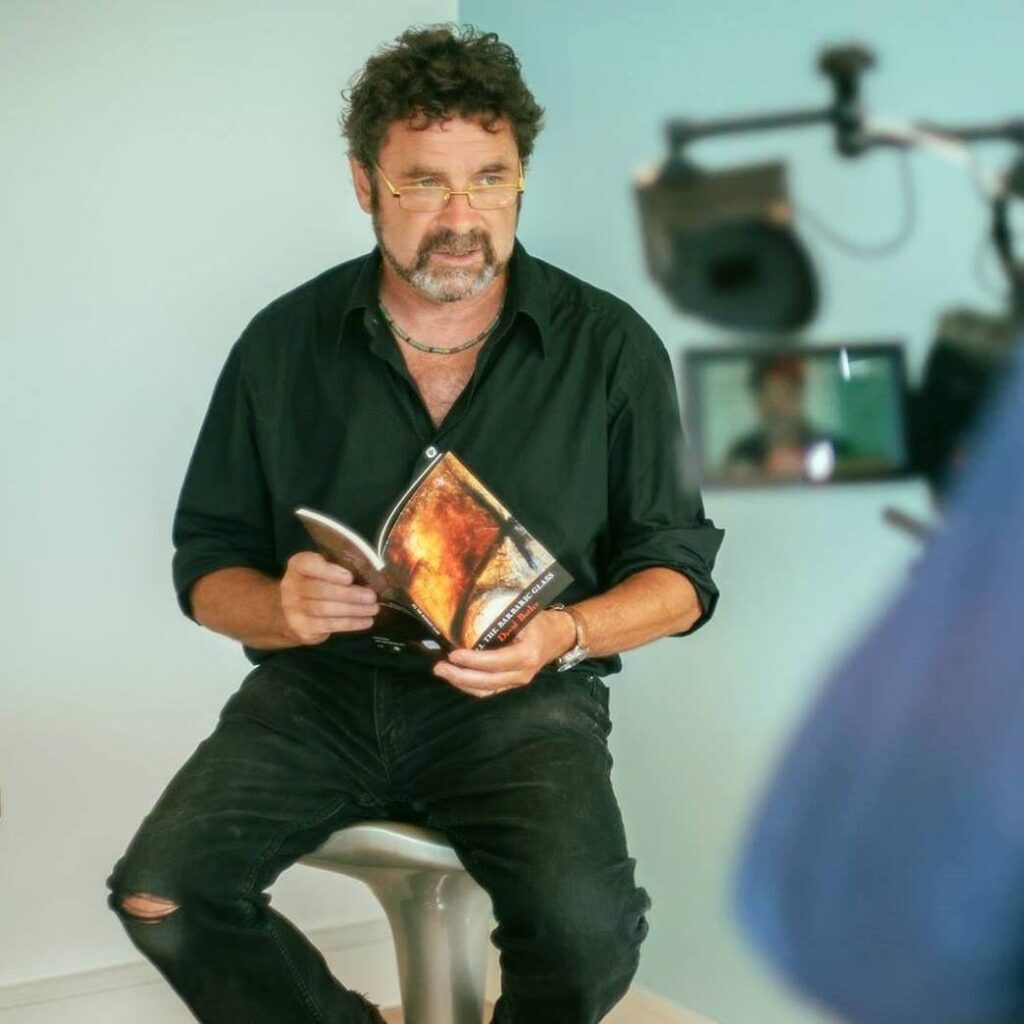
A Little Unsteadily Into Light|eds Jan Carson & Jane Lugea|New Island|9781848408616|€16.95

“…there is great variety in these nine fictions, not only in the character and degree of agency of the dementia sufferer, but in the degree to which the reader is challenged by the form.”
—David Butler
by David Butler
New Island’s most recent anthology, A Little Unsteadily Into Light, is a timely exploration of dementia via fourteen commissioned pieces of fiction from leading Irish and UK authors.
The collection, which arose out of a research project at Queen’s University Belfast entitled ‘Dementia in the minds of characters and readers’, is book-ended by two insightful essays by editors Jan Carson and Dr Jane Lugea, who led the QUB research.
In her Introduction, Jan Carson places these new fictions in the context of such recent explorations as Florian Zeller’s outstanding drama The Father, and Richard Glatzer’s film Still Alice, by way of Beckett’s Chinese-box on memory and identity Krapp’s Last Tape—the title is a stage-direction from the latter.
A key impetus for the present anthology, she writes, is to avoid the lazy trope of the dementia sufferer as invariably a bewildered, usually female, victim, while touching on matters such as the ethics of appropriating others’ stories.
Jane Lugea’s Afterword provides a useful overview of such representational considerations as perspective, voice, language and aphasia, metaphor, and degree of reality.
Perspectives
If drama and film can present the audience a character unmediated by a narrator, fiction tends to require a narrative perspective.
Given the editorial emphasis on first-hand or lived experience set out in the introduction, it is unsurprising that by far the most common approach taken by the fourteen invited authors is to broach the subject via the point of view of a child witnessing the slow decline (if that’s what it is) of an ageing parent.
Leaving aside Caleb Klaces’ ‘The Portal’, the centre of gravity of which is an interactive computer story, nine of the fourteen fictions adopt such a narrative stance. In all but two, the ‘go-to’ filtering consciousness, whether related in the first or third person, is a daughter’s, occasionally including a second daughter’s contrasting perspective.
Challenging form
That caveat aside, there is great variety in these nine fictions, not only in the character and degree of agency of the dementia sufferer, but in the degree to which the reader is challenged by the form.
Nuala O’Connor’s ‘This Small Giddy Life’, which opens the anthology, defamiliarises by chopping and mixing both chronology and location so that the reader is left with a jigsaw of memory fragments.
As the daughter, Sharon, notes, long before her illness, ‘the time being is the only time our mother knows; there is no past, there is no planned-for future, these are inconveniences.’
Elaine Feeney’s ‘What, You Egg’ is unusual in that it is told principally in the second person, the daughter recounting or recovering for the mother episodes from her youth, in particular how ‘you’ had been mistreated by Mrs Faye, the awful proprietor of a bakery where she’d worked as skivvy until, as the story closes, the mother incorporates this voice into the plural pronoun ‘we’.
The uncertain hold on time of the dementia sufferer is problematized in Paul McVeigh’s suggestively titled ‘Coming and Going’, in which a son who had difficulty ‘coming out’ to his parents must negotiate the unreliable ‘present tense’ of his father, who may or may not have accepted that his son his gay.

Overriding metaphors
There are some remarkable overriding metaphors at work throughout the anthology. Immurement, ‘the idea of sealing a person into a place with no exits’, haunts Sinéad Gleeson’s story of the same name.
A care worker, Piotr, recounts a story ‘about the people in the walls back home’, though it appears the ‘witch’ who is punished was mainly guilty of becoming pregnant by the local bishop.
In another memorable image, Gleeson writes of the mother the narrator is visiting, ‘the illness is a burst pipe in the brain, effluvia covering up all the usual routines, recognition, all the words she loved’.
If the nine stories seen from the point of view of the concerned child form one approach, the remaining five are fascinating in their variety. In ‘Fingerpost’, by Mary Morrissey, which makes the interesting choice of having the seventy-year-old narrator as old as the patient she is intending to visit, an inability to follow Google maps and a repetitive failure to leave a roundabout at the correct exit is particularly effective at communicating her sense of disorientation.
In Henrietta McKervey’s ‘A New Day, Tomorrow’, narrated, like Anns Jean Hughes‘ beautifully composed ‘Sound Distraction’, by the dementia patient herself, defamiliarisation is achieved not through any language lapses – her articulation is faultless – but through playing around both with time and with the ‘level of reality’ as she attempts to ‘crash around the filing cabinets of my mind’.
A care worker named Halia, who may be a figment of the imagination, takes her to a strange room in the facility where, she is advised, she in turn may be a figment of her brother Maurice’s imagination.
Rich and thought-provoking
For me, the richest and most thought-provoking approach in the anthology is Naomi Krüger’s playful ‘People who want History want History’, perhaps because it cleverly eschews the need to have a fixed narrative perspective.
The fiction, an ingenious cat’s cradle of false and interrupted narratives, purports to be a recorded ‘reminiscence interview’ between a patient, Edward Pye, and university student Justyna, interleaved with advisory documents on how to conduct such an interview and concluding with the kind of pat summary one frequently encounters on the doors in care homes.
From the get-go, it is clear that neither Justyna nor the official narratives are adequate to contain the ebullient voice of the roguish Edward Pye, whose playful ‘reminiscence’ begins with the multivalent advice: ‘You never buy a door to fit the space, you always make the space to fit the door’.
It might be an admonishment of official attempts to pigeon-hole, not to say part of the ethos for the anthology itself as set out in Jan Carson’s introduction.
In the words of Nuala O’Connor’s daughter-narrator, ‘We move constantly because Mam is hunting down some elsewhere that will fit her and not one of these places is ever right.’

David Butler is a novelist, short story writer, playwright and poet. He is the author of City of Dis (New Island), All the Barbaric Glass (Doire Press), and Liffey Sequence (Doire Press). His new collection Fugitive is out now with Arlen House.











